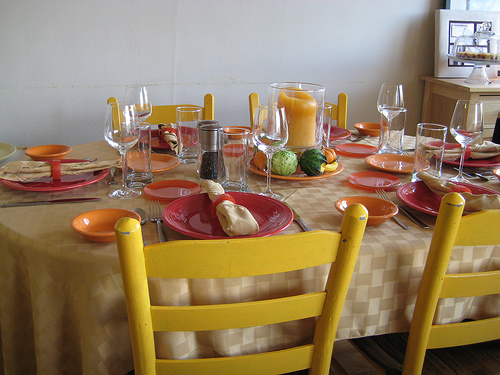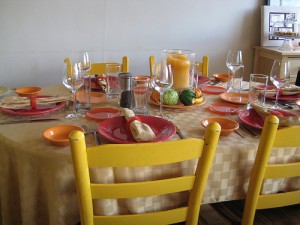A couple years ago, before I became a mother, I came across this passage about parents and children. It was encouraging and visionary, and the idea of being hospitable to our children resonated with something deep in me. At the time, even though I didn’t know when or if I’d become a parent, I took note of it and filed it away, thinking that it would probably come in handy sometime down the road. I stumbled across it again while looking for something else this week. And now I think it’s time to share it.
It might surprise you to know that this was written by a man who neither married nor had children. But he was close to the heart of God. And I think that’s where he gained his wisdom and insight. I hope it inspires you as much as it does me.
Here’s an excerpt on Parents and Children from the book, “Reaching Out” by Henri Nouwen. It’s a little long, but well worth the read:
It may sound strange to speak of the relationship between parents and children in terms of hospitality. But it belongs to the center of the Christian message that children are not properties to own and rule over, but gifts to cherish and care for. Our children are our most important guests, who enter into our home, ask for careful attention, stay for a while and then leave to follow their own way. Children are strangers whom we have to get to know. They have their own style, their own rhythm and their own capacities for good and evil. They cannot be explained by looking at their parents. It is, therefore, not surprising to hear parents say about their children, “They are all different, none is like the other and they keep surprising and amazing us.” Fathers and mothers, more than their family and friends, are often aware how their children differ from themselves and each other. Children carry a promise with them, a hidden treasure that has to be led into the open through education (e = out; ducere = to lead) in a hospitable home. It takes much time and patience to make the little stranger feel at home, and it is realistic to say that parents have to learn to love their children. Sometimes a father or mother will be honest and free enough to say that he or she looked at the new baby as at a stranger without feeling any special affection, not because the child was unwanted but because love is not an automatic reaction. It comes forth out of a relationship which has to grow and deepen. We can even say that the love between parents and children develops and matures to the degree that they can reach out to each other and discover each other as fellow human beings, who have much to share and whose differences in age, talents and behaviour are much less important than their common humanity.
What parents can offer is a home, a place that is receptive but also has the safe boundaries within which their children can develop and discover what is helpful and what is harmful. There their children can ask questions without fear and can experiment with life without taking the risk of rejection. There they can be encouraged to listen to their own inner selves and to develop the freedom that gives them the courage to leave the home and travel on. The hospitable home indeed is the place where father, mother and children can reveal their talents to each other, become present to each other as members of the same human family and support each other in their common struggles to live and make live.
The awareness that children are guests can be a liberating awareness because many parents suffer from deep guilt feelings toward their children, thinking that they are responsible for everything their sons or daughters do. When they see their child living in ways they disapprove of, the parents may castigate themselves with the questions: What did we do wrong? What should we have done to prevent this behaviour? and they may wonder where they failed. But children are not properties we can control as a puppeteer controls his puppets, or train as a lion tamer trains his lions. They are guests we have to respond to, not possessions we are responsible for.
…
The difficult task of parenthood is to help children grow to the freedom that permits them to stand on their own feet, physically, mentally and spiritually and to allow them to move away in their own direction. The temptation is, and always remains, to cling to our children, to use them for our own unfulfilled needs and to hold on to them, suggesting in many direct and indirect ways that they owe us so much. It indeed is hard to see our children leave after many years of much love and much work to bring them to maturity, but when we keep reminding ourselves that they are just guests who have their own destination, which we do not know or dictate, we might be more able to let them go in peace and with our blessing. A good host is not only able to receive his guests with honor and offer them all the care they need but also to let them go when their time to leave has come.
Would that our families reflect of this kind of hospitality. Amen.

